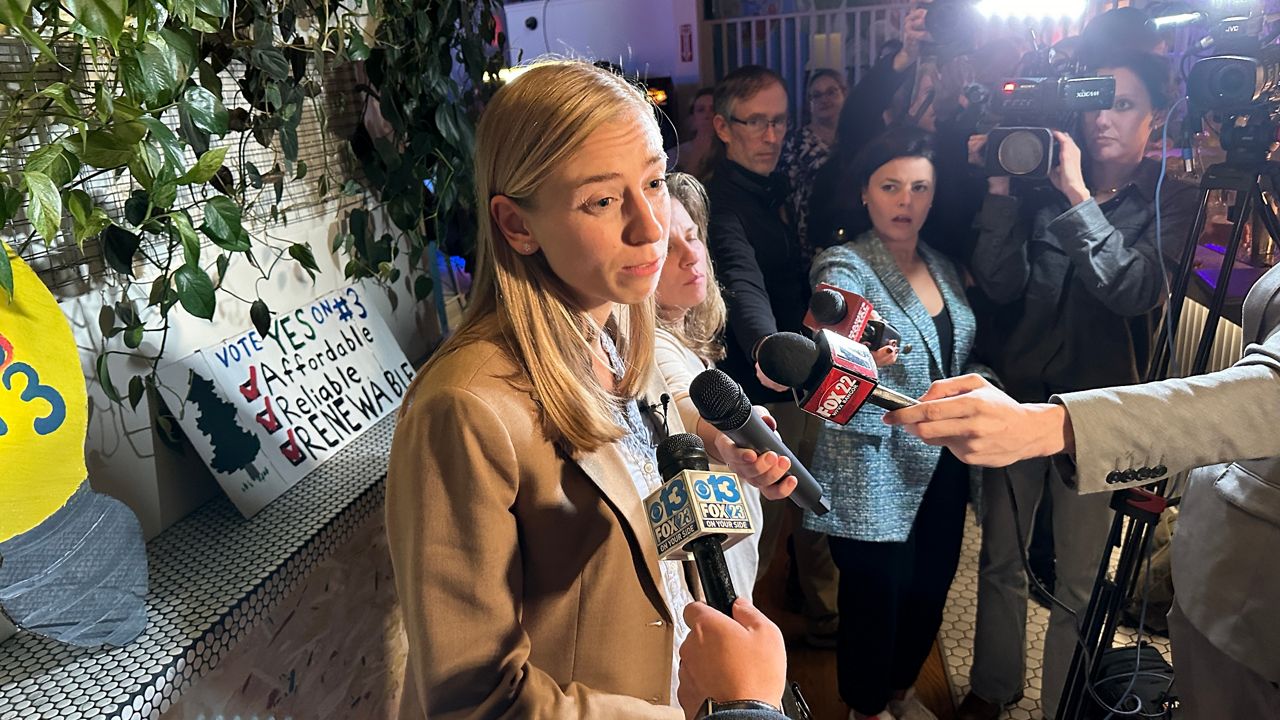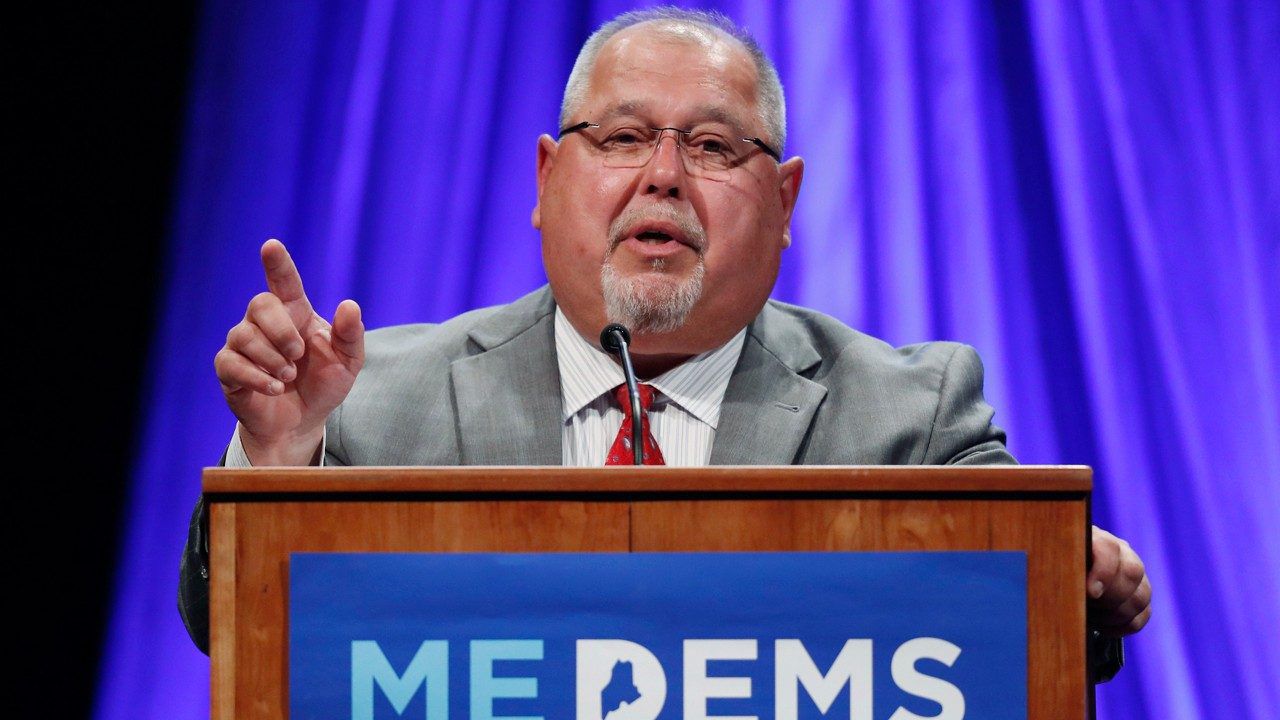Mainers resoundingly rejected a bid Tuesday to buy out the state’s two largest electric utilities and replace them with a nonprofit.
Question 3 failed 71%-29%, according to unofficial election night results.
A group called Our Power put the citizen initiative forward after a similar measure was vetoed by Gov. Janet Mills in 2021. The proposal called for a takeover of Central Maine Power and Versant Power and to replace them with a nonprofit governed by an elected board.
“With this referendum behind us, we are turning the page,” Central Maine Power said in a statement. “As we look forward, we must continue to modernize our grid to support Maine’s climate change goals, connect new renewable resources, and electrify our communities.”
At the Yes on 1 gathering in downtown Portland, deputy campaign manager Lucy Hochscartner said they will continue to take on the utilities.
“This campaign started a really crucial conversation both for Maine and for the nation about the failure of our investor-owned utility system,” she said. “That conversation continues.”
Versant Power President John Flynn said in a statement that the company “remains laser focused” on providing safe and reliable service.
“At Versant Power, we’re glad that most Mainers agree it’s better to work together to achieve our energy goals rather than risk massive amounts of time and money on such a risky proposal,” he said.
The campaign proved to be the most expensive of an otherwise sleepy election cycle in which seven other statewide ballot questions appeared before voters.
CMP, through its parent company Avangrid, spent $23 million opposing the measure, while Versant, through its parent company Enmax, spent nearly $16 million, according to state campaign finance reports.
The combined $39 million dwarfed the $1.3 million spent by supporters.
That difference was noted in a statement released by Our Power that read, in part: “Central Maine Power and Versant’s parent companies poured almost $40 million dollars into misleading voters rather than fixing their worst in the nation service. They made clear that their priority will always be enriching their shareholders, not serving their customers.”
Television advertising that began early this year hammered home one major message — that the takeover had the potential to cost $13.5 billion.
While supporters disputed the accuracy of the figure, they did not offer a competing amount, saying only that a judge or other third party would likely decide how much it would cost.
The major selling point for the proposal was that CMP and Versant — both foreign owned companies — have consistently been ranked poorly for customer satisfaction. Supporters also said that over 30 years, Maine consumers would save $9 billion if they opted to create a nonprofit.
That’s because the nonprofit won’t need to pay shareholders and because it will be able to borrow money at lower rates — estimated to be 2-5% interest — because it will be a publicly owned utility.
Across the state, public utilities in Kennebunk, Houlton and Madison have offered rates 50% lower than what’s paid by CMP and Versant customers, Our Power campaign manager Al Cleveland said.
Mills publicly opposed the measure, urging voters to reject it, saying that it would result in years of litigation.
But other groups came out in favor, including the Natural Resources Council of Maine, which touted the potential benefits of a smoother transition to clean energy such as wind and solar.






